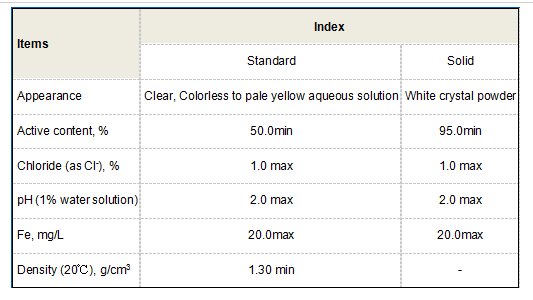Exploring the Applications and Safety of Benzyl Isothiazolinone in Industrial and Consumer Products
Benzyl Isothiazolinone An Overview
Benzyl isothiazolinone (BIT) is a chemical compound that belongs to a class of isothiazolinones, which are widely recognized for their effective antimicrobial properties. As a preservative, BIT has gained significant popularity in various industries, particularly in cosmetics, personal care products, and industrial formulations. This article delves into the properties, applications, safety concerns, and regulatory aspects of benzyl isothiazolinone.
Chemical Properties and Structure
Benzyl isothiazolinone is characterized by its unique chemical structure, which consists of a benzyl group attached to an isothiazolinone ring. This configuration contributes to its activity as a biocide, allowing it to effectively inhibit the growth of bacteria, fungi, and algae. BIT is typically found in liquid form and is soluble in water, which enhances its effectiveness in formulations. Due to its structure, it is also known for its stability under various environmental conditions, making it a reliable choice for many applications.
Applications in Industry
BIT is predominantly used as a preservative in both cosmetic and industrial products. In personal care formulations, it is commonly found in creams, lotions, shampoos, and other products that require antimicrobial protection to prevent spoilage and degradation over time. Its effectiveness in low concentrations makes it a cost-efficient choice for formulators looking to extend the shelf life of their products.
In industrial applications, benzyl isothiazolinone is utilized in paints, adhesives, and coatings, providing protection against microbial contamination during storage and use
. The versatility of BIT allows it to be incorporated into a wide range of formulations, ensuring the longevity and safety of consumer products.Safety and Toxicological Concerns
benzyl isothiazolinone

While BIT is recognized for its biocidal properties, there are growing concerns about its safety, particularly regarding skin sensitization and allergic reactions. The European Commission's Scientific Committee on Consumer Safety (SCCS) has acknowledged these concerns, prompting regulatory bodies to review and impose restrictions on the use of isothiazolinones in cosmetic products.
Studies have shown that benzyl isothiazolinone can cause allergic contact dermatitis in susceptible individuals. As a result, the concentrations of BIT allowed in consumer products have been limited in several regions, including the European Union. It is essential for manufacturers to adequately label products containing BIT, ensuring that consumers are aware of its presence and potential risks.
Regulatory Landscape
The regulatory landscape for benzyl isothiazolinone varies significantly across different countries. In Europe, the use of BIT in cosmetic products is tightly regulated under the Cosmetic Products Regulation (EC) No 1223/2009. The regulation stipulates that BIT must be used within specified concentration limits to mitigate potential health risks.
In contrast, regulatory oversight in countries like the United States is less stringent, where BIT is recognized as generally safe when used as directed. However, the increasing awareness of consumer safety and environmental concerns is prompting manufacturers to explore alternatives to traditional preservatives, including BIT.
Conclusion
Benzyl isothiazolinone is a powerful preservative with versatile applications across various industries. Its effectiveness in preventing microbial growth has made it a popular choice among formulators. However, safety concerns related to skin sensitization necessitate careful consideration and regulation. As consumer preferences shift toward more natural and safe alternatives, the future of benzyl isothiazolinone may evolve, highlighting the need for ongoing research and innovation in the field of antimicrobial preservation.
-
lk-319-special-scale-and-corrosion-inhibitor-for-steel-plants-advanced-solutions-for-industrial-water-systemsNewsAug.22,2025
-
flocculant-water-treatment-essential-chemical-solutions-for-purification-processesNewsAug.22,2025
-
isothiazolinones-versatile-microbial-control-agents-for-industrial-and-consumer-applicationsNewsAug.22,2025
-
scale-inhibitor-key-solutions-for-water-system-scale-preventionNewsAug.22,2025
-
organophosphonates-versatile-scale-inhibitors-for-industrial-water-systemsNewsAug.22,2025
-
scale-and-corrosion-inhibitor-essential-chemical-solutions-for-water-system-maintenanceNewsAug.22,2025





